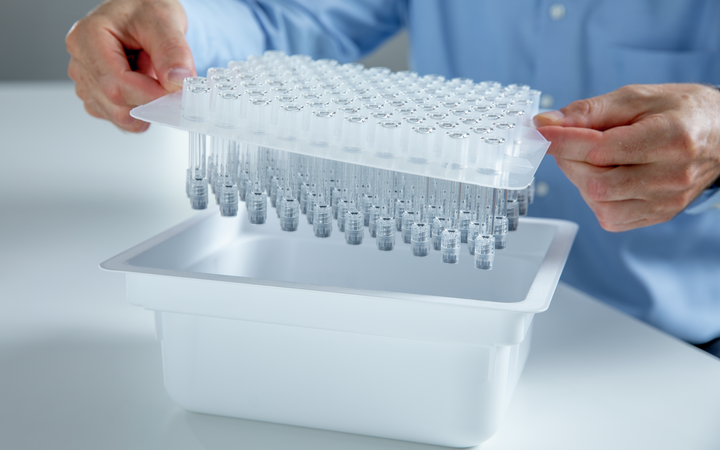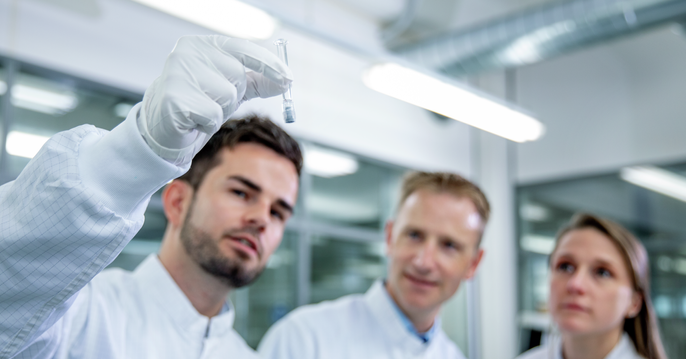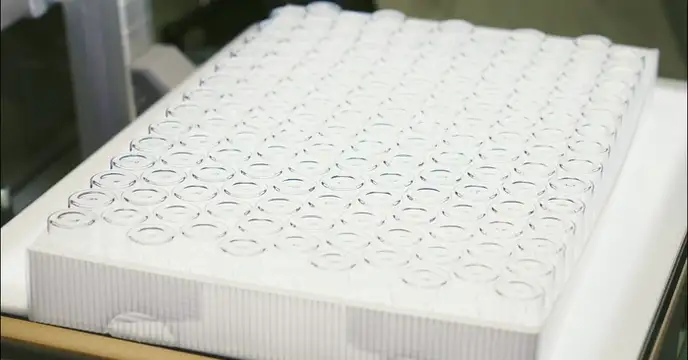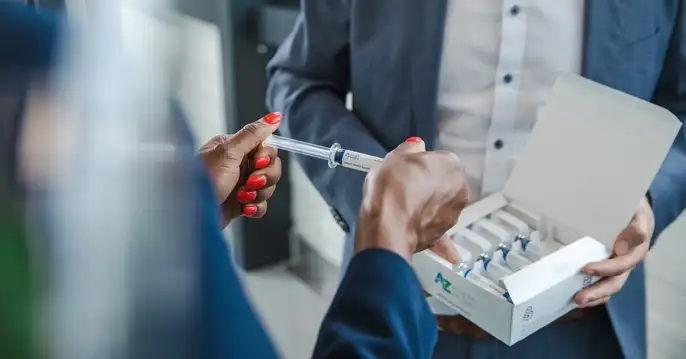
Safe for the patient, sustainable for the planet
Safe for the patient – sustainable for the planet. Our ambition is to solve this challenge and advocate for product and supply chain solutions minimizing environmental impacts with no compromise on patient safety.
Every minute, about 25’000 injections are relying on safe primary packaging solutions delivered by SCHOTT Pharma. A resilient supply of our products is our central contribution to global health.
Next to this, we as SCHOTT Pharma strive to minimize the environmental impact which comes with our products. “Up to 80% of a product’s life cycle environmental impact is determined by its design” is pointed out by experts of Siemens in their Harvard Business Review article. It is about choosing the right materials, but also thinking about how products can be treated at their end-of-life. Therefore, our stewardship for sustainable products starts from product design, supply chain optimization, transport packaging concepts to circularity partnerships and collaboration for industry change. Industry exchange via public presentations or co-organization of events are important means to enlarge the impact of our activities and to fight the global challenge of climate change.
Ecodesign
We ensure that environmental impacts are considered from the start by training product development staff on our Ecodesign guideline. This guideline is formulated for parenteral packaging products. It includes best practices and orientation for a holistic end-to-end thinking process, including material selection, manufacturing processes, packaging density considerations and design for circularity. Design reviews within product development projects verify whether design decisions are in compliance with the Ecodesign guideline. Furthermore, we have established life cycle assessment (LCA) competence via dedicated, trained experts to support reliable conclusions when taking decisions on product design or implementation scenarios.
Find out moreCircular Packaging
We know that beyond the primary packaging containers, secondary packaging elements such as nest, tub or bags are major contributors to the product carbon footprint. Hence, rethinking packaging from material selection to design considerations and end-of-life compatibility is a focus on our agenda. By collaboration with like-minded suppliers, partners and customers, we have evaluated best-balance solutions that reduce the need for virgin materials, waste and related emissions. What is the best-balance is a case-to-case decision reflecting environmental, quality, logistic and financial considerations. We are happy to have the support of our customers to jointly pioneer and pilot new solutions.
Collaboration for Sustainable Products
Collaboration forms a central element in SCHOTT Pharma’s sustainability strategy. Joining forces with suppliers, partners, and customers enables us to validate problem statements and ensure that the solution is accepted across the value chain. Next to several bi- or multilateral project initiatives, we are a founding member of the Alliance to Zero, a membership association of like-minded companies striving for decarbonization along the value chain of injection devices. This enables us to challenge current practices and co-innovate new concepts, services, and products for meaningful industry-wide change.
Find out more










